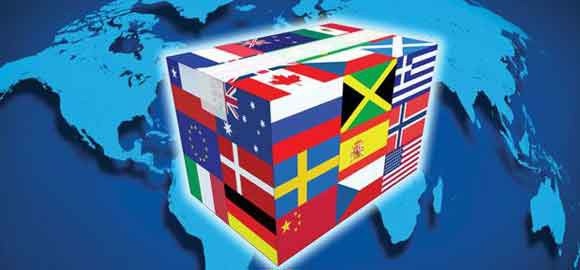“The secret of freedom lies in educating people, whereas the secret of tyranny is in keeping them ignorant.” ― Maximilien Robespierre
Once again, the masters of Orwellian doublespeak have crawled from under their rocks to obfuscate the truth behind the most blazingly illegal and power grabbing treaty in US history. By calling TPP a “trade” agreement when only 5 of 29 chapters of the agreement actually cover trade they once again show how willing they are to deceive the American public into signing away our few remaining rights. The secrecy behind TPP (Trans-Pacific Partnership) and its wicked sibling TTIP (Trans-Atlantic Trade and Investment Partnership) is legendary and should have more than just the Germans protesting it.
Once again, the masters of deception negotiating this bane of freedom were outed by WikiLeaks which released more documents exposing the extreme internet censorship plan contained within TPP. This plan will make the internet more expensive, censored, and policed. It undermines freedom and national sovereignty, and would force SOPA-like Internet censorship on the world. Remember SOPA (Stop Online Piracy Act) – the “copyright legislation” that the public outcry forced Congress to kill last year? Well, the same corporations behind SOPA have pushed to insert its most malevolent provisions into TPP.
Led by President Obama appointee Robert Holleyman as deputy U.S. trade representative, TPP has given new life to SOPA. Few seem to remember Holleyman was chief executive of BSA/the Software Alliance, a trade organization for software companies that counts Apple, IBM, Microsoft and other top computer firms among its members. Holleyman also worked as a professional promoter of SOPA, a bill introduced in 2011 by Representative Lamar Smith (R-Texas).
Under this TPP proposal, Internet Service Providers could be required to “police” user activity (i.e. police YOU), take down internet content, and cut people off from internet access for common user-generated content. This tells you that as far as the negotiators were concerned, the most important fact about the internet is whether people watch or download movies without paying for them ― not whether one of the most important tools used worldwide today is appropriately safeguarded.
Violations could be as simple as the creation of a YouTube video with clips from other videos, even if for personal or educational purposes. In all participating nations, anyone found to have infringed copyright will have to pay civil damages… and the TPP grants courts in all those countries the rights to consider basically everything and set the bar sky-high in determining those penalties.
Also, if one country is prosecuting someone for “intellectual property theft,” they can require other countries to turn over huge amounts of private data: “information regarding any person involved in any aspect of the infringement or alleged infringement, and regarding the means of production or the channels of distribution of the infringing or allegedly infringing goods or services, including the identification of third persons alleged to be involved in the production and distribution of such goods or services and of their channels of distribution.”
In other words, if you’re accused of downloading anime in America, the Japanese government can force your American ISP to hand over all of your parents‘ online records. Users could be jailed or hit with debilitating fines over file sharing, and may have their property or domains seized even without a formal complaint from the copyright holder.
“The text of the TPP’s intellectual property chapter confirms advocates warnings that this deal poses a grave threat to global freedom of expression and basic access to things like medicine and information,” said Evan Greer, campaign director of internet activist group Fight for the Future. “But the sad part is that no one should be surprised by this. It should have been obvious to anyone observing the process, where appointed government bureaucrats and monopolistic companies were given more access to the text than elected officials and journalists, that this would be the result.”
Under the terms of the text, countries in the TPP can force each other to suspend legal proceedings if the trial would cause embarrassing information ― information “detrimental to a party’s economic interests, international relations, or national defense or national security” ― would come to light. That would be the Wikileaks/Snowden clause which will create new threats for journalists and whistleblowers with its treacherously vague text on the misuse of trade secrets. This could be used to enact harsh criminal punishments against anyone who reveals or even accesses information through a “computer system” that is allegedly confidential.
Breaking digital locks (which are meant to allow companies to control their products even after they have been bought by customers) for legit purposes, such as using Linux, could subject users to mandatory fines. Blind and deaf people also would be harmed by this overreach, as digital locks can block access to audio-supported content and closed captioning.
The single most effective thing you can do to stop the TPP right now is to contact your Senators and Congressmen to tell them not to renew Fast Track for the TPP! Fast Track trade promotion authority would sneak the TPP through Congress without allowing any changes. But if Congress demands its right to review the TPP, this shady deal will be brought to light.
If we stop Fast Track, US trade officials will lose their best bargaining chip, and won’t be able to force other countries to comply with their outrageous demands.
Stop Fast Track; stop the TPP in its tracks!
“One man with courage makes a majority.” ― Andrew Jackson



